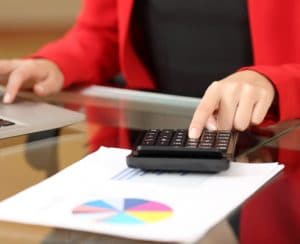5 tax tips for sole traders this financial year
From the advent of social media to smart phones, our lives are very different to what they were a relatively short time ago.
Technology has also created countless new jobs that literally never existed before.
And many of these new professions, as well as more traditional ones, are being fulfilled by sole traders.
Becoming self-employed can provide many benefits, including financial, but it comes with it additional tax obligations.
Most of us don’t like to think about tax – let alone spend time managing it – but it is the reality of life for sole traders.
Knowing your sole trader tax deductions makes a difference
 The majority of Australians are employees who possibly don’t do much thinking about their tax – unless they’re due a refund at the end of the financial year.
The majority of Australians are employees who possibly don’t do much thinking about their tax – unless they’re due a refund at the end of the financial year.
Even then they often usually use the services of a professional tax accountant to sort that out for them.
When it comes to sole trader tax, however, it’s important that you understand how your responsibilities differ from the average employee.
Sole trader tax involves understanding your obligations when it comes to your Tax File Number, Australian Business Number, Goods and Services Tax (GST), Personal Services Income and PAYG instalments.
Of course, engaging the services of a professional is the first step but that doesn’t mean you shouldn’t have an understanding of what being a sole trader means to the tax department.
Do you have to pay GST?
Among the many sole trader tax tips is understanding what your GST obligations are.
While your financial adviser can assist in this area, it’s important to realise that if you’re likely to earn more than $75,000 per annum from your sole trader business, you should be voluntarily registered for GST.
And that means that you’re required to collect it from the businesses you undertake contract work with as well.
At the end of the financial year, once you lodge your tax return, this GST will then be lodged with the ATO.
What about super contributions?
 As a sole trader, you’re not legally required to contribute to your superannuation but it makes sound financial sense to do so.
As a sole trader, you’re not legally required to contribute to your superannuation but it makes sound financial sense to do so.
There are a number of reasons for that, but the main one is that it is a way of saving for your retirement.
While cash flow can wax and wane for sole traders, making regular contributions to your super fund is a sound financial strategy.
Another reason is that super contributions are classed as a sole trader tax deduction, which means funds deposited into your super – up to the legal limits – will be deducted from your income at the end of the financial year.
And that can mean that you may pay less income tax, which is never a bad thing.
Structure your personal finances for success
As we mentioned, cash flow can be variable when you’re self-employed.
While your annual income total may be sound, some months are likely to be more lucrative that others.
So how do you structure your personal finances for success?
Some of the best money management strategies for sole traders is to deposit all of your earnings into a different bank account – perhaps an offset one – and then pay yourself a set wage every week or month.
That way your sole trader earnings are separate from your everyday transaction account, which means you can save for other expenses such as your GST, PAYG, and super contributions.
Another option is to take out income protection insurance in case you get sick and can’t work.
The good thing is that premiums for this type of insurance, if you’re self-employed and the policy is held outside of your super, are usually tax-deductible.
Seek professional advice about your finances
Intuitive Finance has long specialised in helping the self-employed manage their finances, including increasing their chances of home loan application success.
The world of banking and finance can be a pretty daunting one for both novice and sophisticated investors and since our establishment in 2002 we’ve focused on providing outstanding service and business standards.
This approach was vindicated when we were named Victoria’s favourite mortgage broker at the Investors Choice Awards.
So, if you’re a sole trader and want the best personal finance and investment advice, why now contact Intuitive Finance today to ensure you have the right information and expert support on your side from the very beginning?
And not only can you book a complimentary consultation, you can also download our free guide “The Key Finance Issues That All Self-Employed People Need To Consider”.
The information provided in this article is general in nature and does not constitute personal financial advice. The information has been prepared without taking into account your personal objectives, financial situation or needs. Before acting on any information you should consider the appropriateness of the information with regard to your objectives, financial situation and needs.
